
Blockchain Applications & Real-World Use Cases
Blockchain applications go far beyond cryptocurrency and bitcoin. With its ability to create more transparency and fairness while also saving businesses time and money, the technology is impacting a variety of sectors in ways that range from how contracts are enforced to making government work more efficiently.
We’ve rounded up 34 examples of real-world blockchain use cases for this pragmatic yet revolutionary technology. It’s far from an exhaustive list, but they’re already changing how we do business.
13 PROMINENT BLOCKCHAIN APPLICATIONS TO KNOW
- Secure sharing of medical data
- NFT marketplaces
- Music royalties tracking
- Cross-border payments
- Real-time IoT operating systems
- Personal identity security
- Anti-money laundering tracking system
- Supply chain and logistics monitoring
- Voting mechanism
- Advertising insights
- Original content creation
- Cryptocurrency exchange
- Real estate processing platform

Money Transfer Use Cases
Pioneered by Bitcoin, cryptocurrency transfer apps are exploding in popularity right now. Blockchain is especially popular in finance for the money and time it can save financial companies of all sizes.
By eliminating bureaucratic red tape, making ledger systems real-time and reducing third-party fees, blockchain can save the largest banks $8-$12 billion a year, according to a recent article by ComputerWorld. We’ll take a deeper dive into four companies using blockchain to efficiently transfer money.
Algorand
Blockchain application: Algorand is developing technology that reduces the gaps between traditional and decentralized finance, implementing next-generation products and protocols to make financial transactions more equitable for all. The company’s technology is enabled by a set of Layer-1 blockchains to provide scalability, security, transaction finality, privacy, co-chain and smart contract capabilities, with use cases ranging from securities and supply chains to insurance, gaming, digital contracts and beyond.Get Alerted for Jobs from Algorand
Gemini
Blockchain application: Gemini is a licensed digital asset exchange and custodian that facilitates regulated and secure buying, selling and storing of digital assets like Bitcoin and Etherium. The company offers a range of products and services that allow crypto traders to utilize their assets in the ways they best see fit, from credit cards that provide crypto rewards to the Gemini Earn program that allows users to earn up to 7.4% interest on their wallets.
Chain
How it’s using blockchain: Chain builds tools to help financial institutions and governments monitor the exchange of cryptocurrencies. The company’s due diligence software monitors and detects fraudulent trading, laundering and compliance violations, and builds trust in blockchain
Circle
How it’s using blockchain: Boston-based Circle oversees more than $2 billion a month in cryptocurrency investments and exchanges between friends. Circle’s investment and money transfer platform currently features seven different cryptocurrencies, including Bitcoin, Monero and Zcash.
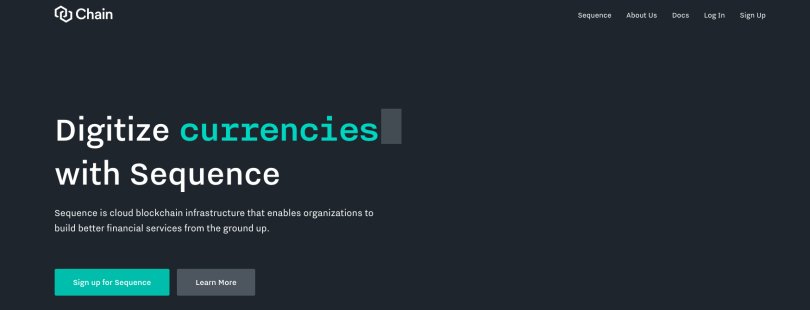
Chain.io
How it’s using blockchain: Chain builds cloud blockchain infrastructures for financial services. The San Francisco company’s cryptographic ledgers help financial institutions safely and efficiently handle the transfer of cryptocurrencies.

Smart Contracts Use Cases
Smart contracts are like regular contracts except the rules of the contract are enforced in real-time on a blockchain, which eliminates the middleman and adds levels of accountability for all parties involved in a way not possible with traditional agreements. This saves businesses time and money, while also ensuring compliance from everyone involved.
Blockchain-based contracts are becoming more and more popular as sectors like government, healthcare and the real estate industry discover the benefits. Below are a few examples of how companies are using blockchain to make contracts smarter.
BurstIQ
How it’s using blockchain: BurstIQ’s big data blockchain contracts help patients and doctors securely transfer sensitive medical information. The smart contracts establish the parameters of what data can be shared and even displays details of personalized health plans for each patient.
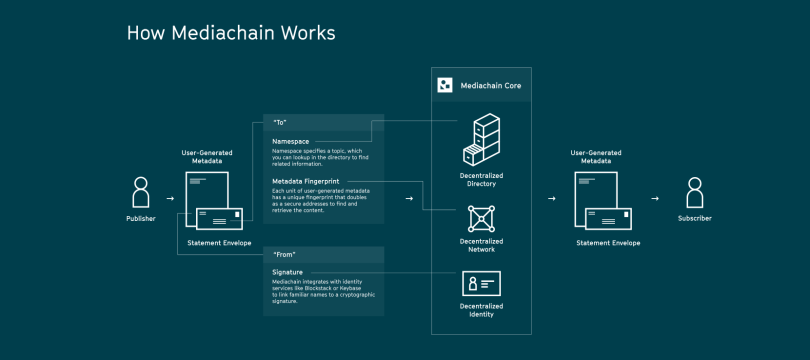
Mediachain
How it’s using blockchain: Mediachain uses smart contracts to get musicians the money they deserve. By entering into a decentralized, transparent contract, artists can agree to higher royalties and actually get paid in full and on time. Streaming giant Spotify acquired Mediachain.
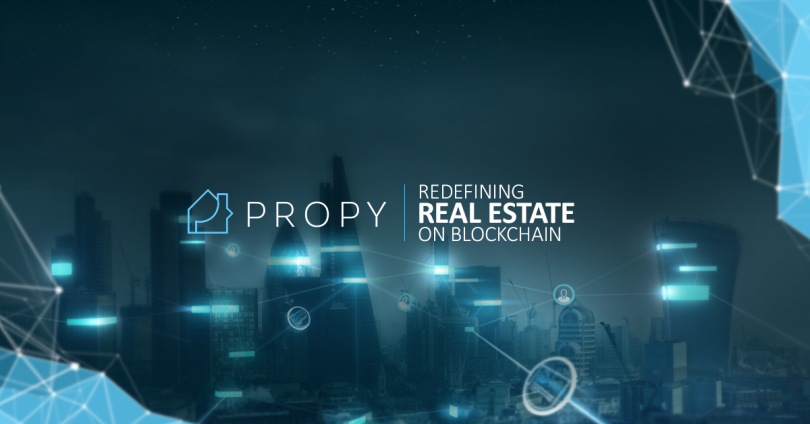
Propy Inc
How it’s using blockchain: Propy is a global real estate marketplace with a decentralized title registry system. The online marketplace uses blockchain to make title issuance instantaneous and even offers properties that can be purchased using cryptocurrency.
Internet of Things Use Cases
The Internet of Things (IoT) is the next logical boom in blockchain applications. IoT has millions of applications and many safety concerns, and an increase in IoT products means better chances for hackers to steal your data on everything from an Amazon Alexa to a smart thermostat.
Blockchain-infused IoT adds a higher level of security to prevent data breaches by utilizing transparency and virtual incorruptibility of the technology to keep things “smart.” Below are a few US companies using blockchain to make the Internet of Things safer and smarter.
Filament!
How it’s using blockchain: Filament creates software and microchip hardware that lets connected devices operate on blockchain. The Reno-based company’s products encrypt ledger data, distribute real-time information to other blockchain-connected machines and allow for the monetization of those machines based on timestamps.

HYPR
How it’s using blockchain: HYPR thwarts cybersecurity risks in IoT devices with its decentralized credential solutions. By taking passwords off a centralized server, while using biometric and password-free solutions, the company makes IoT devices virtually unhackable.
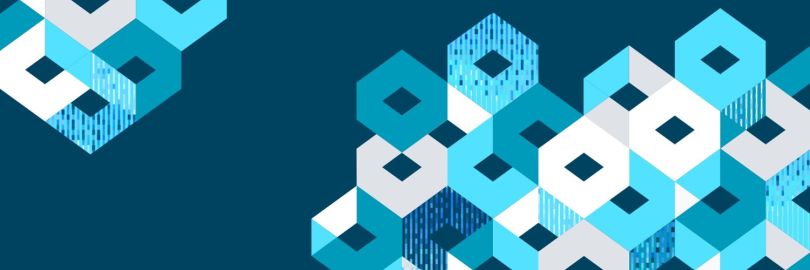
Xage Security
Blockchain Application: Xage is the world’s first blockchain-enabled cybersecurity platform for IoT companies. The technology manages billions of devices at once and can even self-diagnose and heal possible breaches. Xage is primarily used by IoT companies in the transportation, energy and manufacturing industries.

Personal Identity Security Use Cases
According to identity theft expert LifeLock, more than 16 million Americans complained of identity fraud and theft in 2017 alone, with an identity being stolen every two seconds. Fraud on this scale can occur via everything from forged documents to hacking into personal files.
By keeping social security numbers, birth certificates, birth dates and other sensitive information on a decentralized blockchain ledger, the government could see a drastic drop in identity theft claims. Here are a few blockchain-based enterprises at the forefront of identity security.
Ligero
Blockchain application: Ligero provides lightweight, scalable protocols for secure multiparty computation and zero-knowledge proofs, providing a highly capable platform for facilitating decentralized collaboration both on and off blockchain. The platform makes it possible to complete confidential transactions, private smart contracts, secure auctions for decentralized exchanges and enable verifiable machine learning capabilities, and is led by a team of capital and cryptography experts with decades of experience.
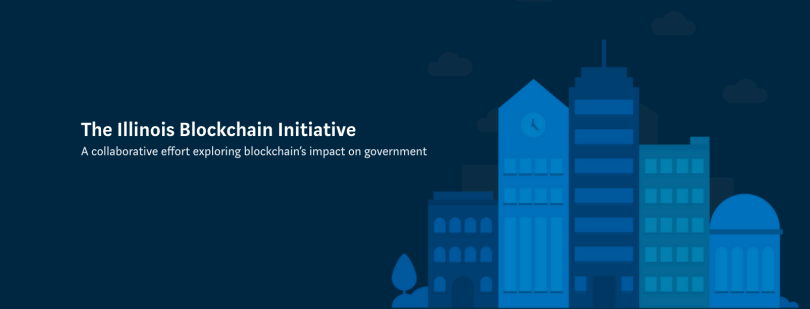
Illinois Blockchain Initiative
Blockchain Application: Illinois is at the forefront of experimental blockchain in government with the Illinois Blockchain Initiative. The state-funded initiative has already put in place measures to use a distributed blockchain ledger to enhance the security of birth certificates, death certificates, voter registration cards, social security numbers and much more.
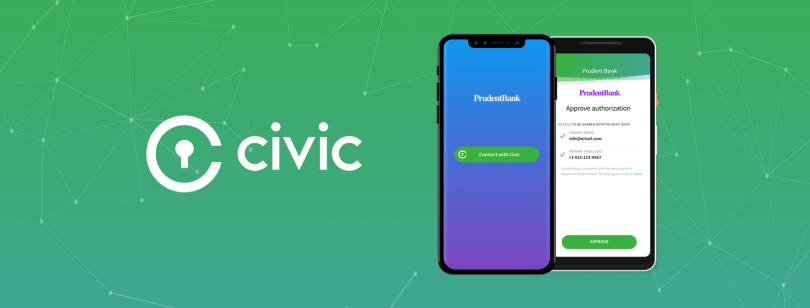
Civic
How it’s using blockchain: Civic is a blockchain-based ecosystem that gives individuals insights into who has their information. The company’s users enter into smart contracts, where they decide who can share their personal information and how much. If the contract is broken or an unauthorized source tries to access private data, the individual is immediately alerted.

Evernym, Inc.
How it’s using blockchain: Evernym’s Sovrin identity ecosystem lets individuals manage their identities all over the web using distributed ledger technology. Sovrin stores private information, acts as a communication medium between the individual and entities wanting private information, and verifies information as true in real-time.

Ocular
How it’s using blockchain: Ocular’s anti-money laundering compliance platform leverages blockchain-enabled security to ensure data cannot be manipulated. The technology uses biometric systems to scan the faces of individuals applying for passports, driver’s licenses and other government issued IDs. By viewing biometric systems on blockchains, governments can more easily catch identity thieves foraging fake passports, certificates and IDs from other countries.

Healthcare Use Cases
Blockchain in healthcare, though early in its adoption, is already showing some promise. In fact, early blockchain solutions have shown the potential to reduce healthcare costs, improve access to information across stakeholders and streamline businesses processes. An advanced system for collecting and sharing private information could be just what the doctor ordered to make sure that an already bloated sector can trim down exorbitant costs.
WholeCare
Blockchain application: For both health professionals and families providing care, WholeCare simplifies and streamlines the influx of information necessary to properly manage and provide care for those who need it when they need it most. The WholeCare platform brings care plan information, medication protocols, appointment creation and high quality resources into an easily distillable platform that allows individuals, support systems and multi-care facilities to better understand how to provide the nuanced care possible. Built on a blockchain network to remain as secure as possible, WholeCare provides HIPAA-compliant record keeping so all people involved in the care process can maintain peace of mind.
Patientory
How it’s using blockchain: Patientory is an all-in-one medical record system for patients and doctors alike, backed by blockchain technology. One of the biggest issues with healthcare is the fragmentation of data across different providers and clinics. With Patientory, a patient’s medical history, records, current providers and mostly everything else a medical doctor would need to know is constantly and securely accessible. The blockchain-platform allows for patients and doctors to stay in constant communication, while a steady pipeline of medical data allows for any medical professional to quickly and safely diagnose patients based on a clearer medical history
Nebula Genomics
How it’s using blockchain: Nebula Genomics is on a mission to understand the human genome and to make personal genomics more affordable and accessible. The company’s whole-genome DNA sequencing tests are the only tests available that decode 100% of an individual’s DNA. All information gathered from an individual test is totally anonymous and kept private through a blockchain-based encryption, so a user’s data can never be identified or stolen.
MEDICALCHAIN
How it’s using blockchain: Medicalchain’s cooperative blockchain platform allows for an easier and more secure flow of information that helps both the patient and medical professionals. With Medicalchain, doctors no longer have to wait on insurance information. The blockchain can automatically verify whether a patient has insurance and is covered. Additionally, drug and clinical trials can easily identify top candidates through a blockchain-based portal that safely shows patient medical records and identifies prime contenders for different trials.
Logistics Use Cases
A major complaint in the shipping industry is the lack of communication and transparency due to the large number of logistics companies crowding the space. According to a joint study by Accenture and logistics giant DHL, there are more than 500,000 shipping companies in the US alone, causing data siloing and transparency issues. The report goes on to say blockchain can solve many of the problems plaguing logistics and supply chain management.
The groundbreaking study argues that blockchain enables data transparency by revealing a single source of truth. By acknowledging data sources, blockchain can build greater trust within the industry. The technology can also make the logistics process leaner and more automated, potentially saving the industry billions of dollars a year. Blockchain is not only safe, but a cost-effective solution for the logistics industry. Here are some companies on the cutting-edge of logistics blockchain technology.

DHL
How it’s using blockchain: Shipping giant DHL is at the forefront of blockchain-backed logistics, using it to keep a digital ledger of shipments and maintain integrity of transactions. DHL has a major presence in the US and is one of the largest shipping companies to embrace blockchain.
Block Array
How it’s using blockchain: Block Array introduced the first “Bill of Lading” to run on blockchain. The logistics operation platform helps businesses safely monitor the progress of their shipped goods, house information on drivers and materials, and manage payments. Block Array also features smart contract processing and secure document management.
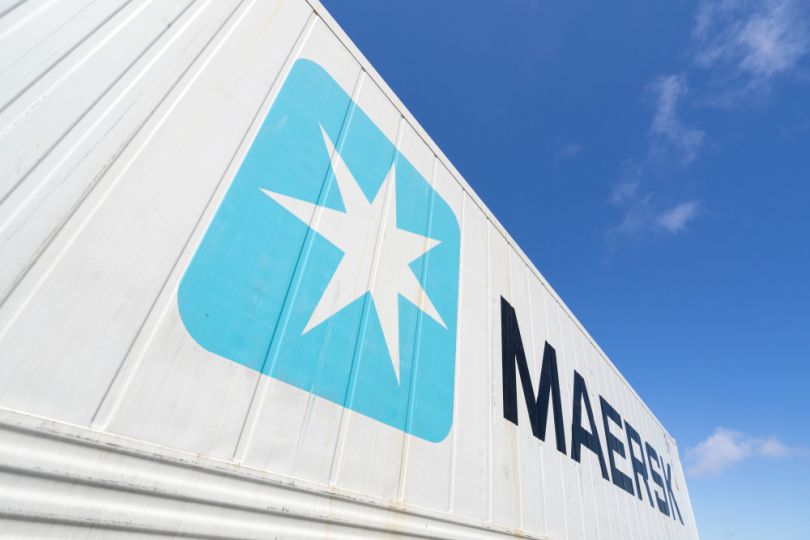
Maersk
How it’s using blockchain: Based in Denmark, but with offices all over the US, shipping giant Maersk has teamed up with tech giant IBM to infuse blockchain into global trade. The two companies will use blockchain to better understand supply chain and track goods digitally across international borders in real-time
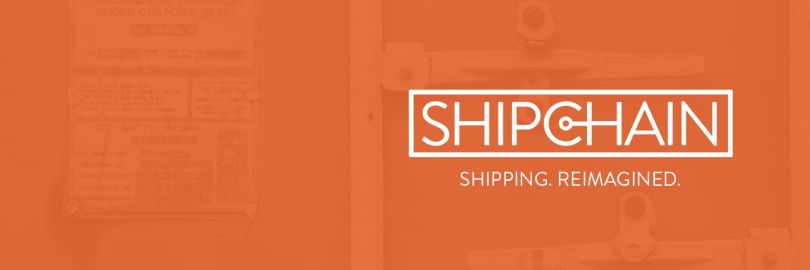
ShipChain
How it’s using blockchain: ShipChain is a fully integrated blockchain system serving the end-to-end shipping process. From the moment the shipment leaves the facility to the time it arrives at its destination, the logistics ecosystem safely tracks and documents every move to create a transparent ledger. Based in Los Angeles, ShipChain is aiming to modernize the $8.1 trillion supply chain market using blockchain.

Non-Fungible Tokens (NFTs)
Non-Fungible Tokens (NFTs) have been the hottest blockchain application since cryptocurrency. 2021 brought a rise in these digital items that are currently taking the world by storm. NFTs are simply digital items, like music, art, GIFs, videos, etc., that are sold on a blockchain, ensuring that a sole owner can claim full rights to it. Thanks to blockchain technology, consumers can now claim sole ownership over some of the most desirable digital assets out there.
Remember the 2011 meme Nyan Cat? That memorable GIF just sold for $600,000 in ethereum on the blockchain. Before October, the digital artist “Beeple” never sold anything over $100. In March 2020, his digital work The First 5000 Days sold for an astounding $69 million. NFTs give buyers the chance to own digital moments, art, and culture that will outlive us all. Below are a few examples of companies taking advantage of the NFT wave.
cANDY
Blockchain application: Candy operates a cutting-edge NFT ecosystem that allows fans and collectors to interact with top sports, art, music and cultural icons in the form of official licensed digital collectibles, opening up the doors to a secure marketplace where users can buy, sell and trade NFTs to maximize their investment. The company works directly with athletes, artists and content owners to bring their NFT projects to life in breathtaking ways and is currently producing a series highlighting Major League Baseball’s 30 stadiums.
Dapper Labs
How it’s using blockchain: Dapper Labs is one of the first companies to explode thanks to the NFT craze. They’ve partnered with the NBA to bring about “NBA Top Shot”, a NFT marketplace where buyers have the opportunity to become owners of digital media from their favorite NBA players or teams. Buyers have the opportunity to own collectible moments that range from a Lebron James highlight reel dunk to an Anthony Davis blocked shot GIF. To date, Top Shot has already produced more than $500 million in sales
Pixura
How it’s using blockchain: Pixura is a platform that helps non-technical users to create, track and exchange digital NFTs on the blockchain. The company helps everyone from game studios to individual musicians and artists to create their own digital assets in just minutes. The company also created the site SuperRare, which has become one of the go-to sites for buying and selling digital art in the NFT era.
Government Use Cases
One of the most surprising applications for blockchain can be in the form of improving government. As mentioned previously, some state governments like Illinois are already using the technology to secure government documents, but blockchain can also improve bureaucratic efficiency, accountability and reduce massive financial burdens. Blockchain has the potential to cut through millions of hours of red tape every year, hold public officials accountable through smart contracts and provide transparency by recording a public record of all activity, according to the New York Times.
Blockchain could also revolutionize our elections. Currently, voter apathy in the US is at an all-time high, with just over 58 percent turning out in the 2016 presidential election, while only 36.4 percent of the voting-eligible public showed up for \the 2014 midterm elections, according to PBS. Blockchain-based voting could improve civic engagement by providing a level of security and incorruptibility that allows voting to be done on mobile devices.
The following companies and government entities are a few examples of how blockchain applications are improving government.
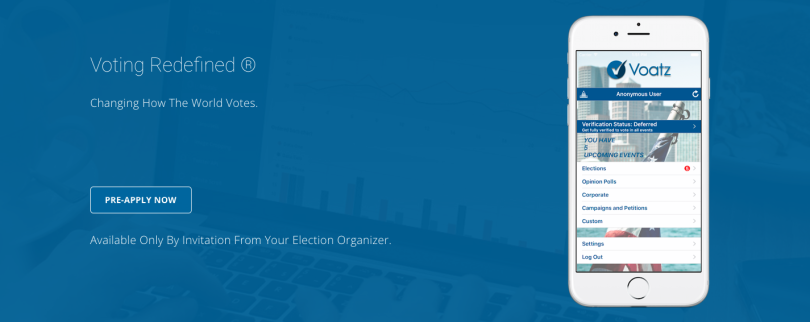
VOATZ
How it’s using blockchain: Voatz is a mobile voting platform that runs on blockchain. The encrypted biometric security system makes it secure to vote on a mobile device from anywhere in the world without fear of hacking or data corruption. West Virginia is one of the first states to use the company’s platform to collect votes from eligible service people and travelers abroad during elections.

State of Delaware
How it’s using blockchain: Similar to the Illinois Blockchain Initiative, the State of Delaware is also launching their own initiative to explore the benefits of blockchain in business and government. So far, the state has mostly focused its efforts into archiving public documents and safely securing private records. The next step in Delaware’s initiative is to begin implementing smart contracts between the government and corporations.
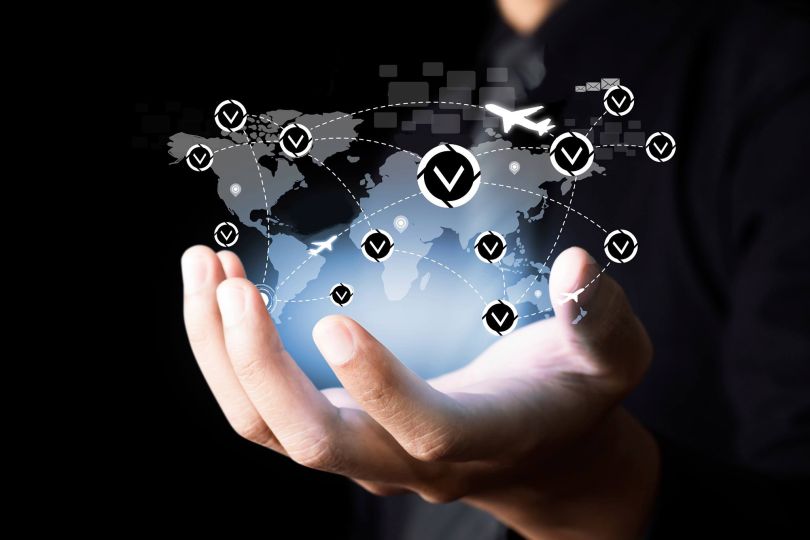
Follow My Vote
How it’s using blockchain: Follow My Vote is a secure online voting platform using an open-source virtual blockchain ballot box. The technology decreases spending on physical ballots and can be accessed via any device. Follow My Vote implements the end-to-end tools that elections need in order to provide total safety and confidence in the voting process.

Media Use Cases
Many of the current problems in media deal with data privacy, royalty payments and piracy of intellectual property. According to a study by Deloitte, the digitization of media has caused widespread sharing of content that infringes on copyrights. Deloitte believes blockchain can give the industry a much needed facelift when it comes to data rights, piracy and payments.
Blockchain’s strength in the media industry is its ability to prevent a digital asset, such as an mp3 file, from existing in multiple places. It can be shared and distributed while also preserving ownership, making piracy virtually impossible through a transparent ledger system. Additionally, blockchain can maintain data integrity, allowing advertising agencies to target the right customers, and musicians to receive proper royalties for original works. The following US-based companies are helping grow the popularity of blockchain in our media.
MadHive
How it’s using blockchain: MadHive is a blockchain-based advertising and data solution for digital marketers. The platform tracks, stores and generates reports on customer activity, saving all the data to a private blockchain. MadHive’s targeted audience reports and real-time data monitoring give advertisers insights into their customers without compromising data privacy.
STEEM
How it’s using blockchain: Steem is a social media platform backed by blockchain. Its “Proof-of-Brain” community uses tokens as incentives, encouraging people to create original content. The amount of tokens distributed is based on the number of upvotes each article receives. Steem has payed over $40 million in tokens to creators.
Open Music Initiative
How it’s using blockchain: Open Music Initiative is a Boston-based nonprofit creating an open source protocol to identify original creators and music rights holders. By trusting their music rights data to blockchain, the nonprofit is making it easier for artists and musicians to be recognized for their work and paid correctly. The initiative has backing from from virtually all areas of the music industry, including producers and radio stations, as well as media giants like Netflix and Spotify.
Your Team FREE eLEARNING Courses (Click Here)
Job Opportunities in Blockchain
Job Interview Questions
- Blockchain Jon Interview Question
- Blockchain Interview Question Answer
- Blockchain Interview Question
- Top 29 Blockchain Interview Question
- Blockchain Interview Question
- Blockchain Interview Question with Answer
- Top 7 Blockchain Projects
- Top Promising Blockchain Projects
- 34 Blockchain Application
- The Growing List of Blockchain App & Use Cases
- Top 17 Blockchain App
Related Courses
- Blockchain Programming Course
- Bitcoin, Blockchain, Cryptocurrencies Diploma Course
- Blockchain Training
- Blockchain Technology and APP
- Ethereum Developer
- Blockchain Specialization


